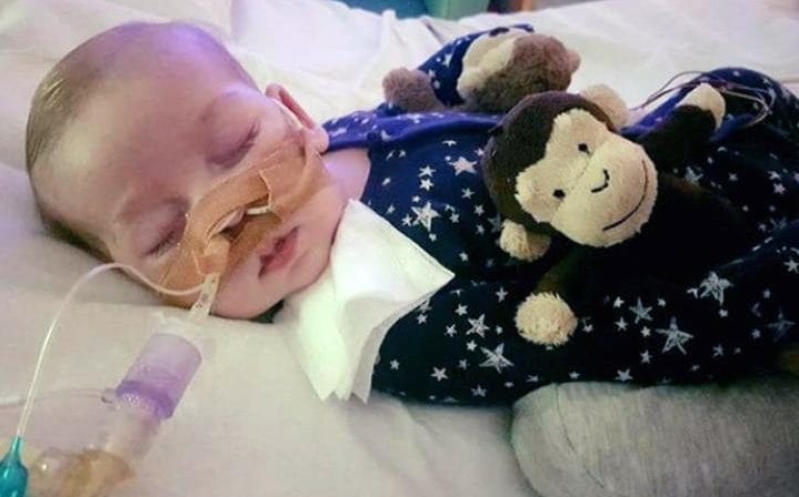
Charlie Gard, the terminally ill British baby, died Friday - just one week before his first birthday, according to a family spokesperson.
"Our beautiful little boy has gone, we are so proud of you Charlie," the 11 month-old baby's mother Connie Yates said in a statement.
Charlie, who suffered from an extremely rare genetic condition causing progressive brain damage and muscle weakness, died in a London hospice, where he was transferred on Thursday, against his parent's wishes.
Yates and Charlie's' father, Chris Gard, had wanted to spend up to a week at the hospice with Charlie before he was taken off a ventilator, but the high court ruled that this would require a specialist team to stay with him round the clock in the hospice.
"We just want some peace with our son, no hospital, no lawyers, no courts, no media, just quality time with Charlie away from everything to say goodbye to him in the most loving way," Yates said in a statement one day prior to her son's death.
"Mummy and Daddy love you so much Charlie, we always have and we always will and we are so sorry that we couldn't save you. We had the chance but we weren't allowed to give you that chance. Sweet dreams baby. Sleep tight our beautiful little boy," Charlie's parents said in a statement after they gave up their fight. They called Charlie their hero.
As reported, the infant was the subject of a bitter dispute between his parents and Great Ormond Street Hospital in London, which argued that their son should be taken off life support as they believed he had no chance of survival, and further treatment would increase his suffering.
For months, Charlie's parents had sought to send him to the United States to undergo experimental therapy.
Michio Hirano, a professor of neurology at New York's Columbia University Medical Center, had said he believed there was at least a 10 percent chance his nucleoside therapy could improve the condition of Charlie, who could not breathe without a ventilator, and that there was a "small but significant" chance it would help aid brain functions.
However, Britain's courts, backed by the European Court of Human Rights, refused permission, saying it would prolong his suffering without any realistic prospect of helping the child.
Yates, who won the support of U.S. President Donald Trump and Pope Francis with a campaign to keep him alive, earlier said Charlie could have lived a normal life if he had been given treatment earlier.
"This is the hardest thing we'll ever have to do," she said. ""We have decided it is no longer in his best interests to pursue treatment," Yates said. "We have decided to let our son go ... Charlie did have a real chance of getting better. Now we will never know what would have happened if he got treatment."






